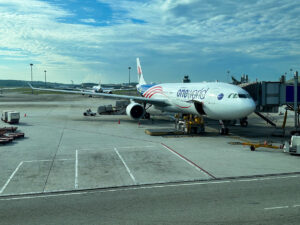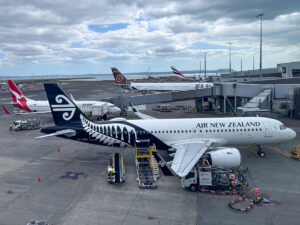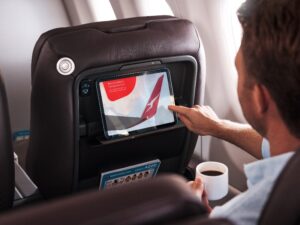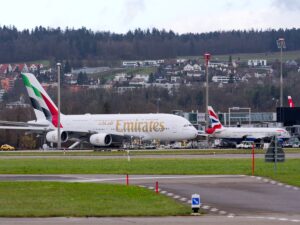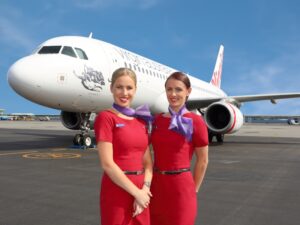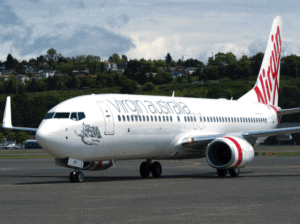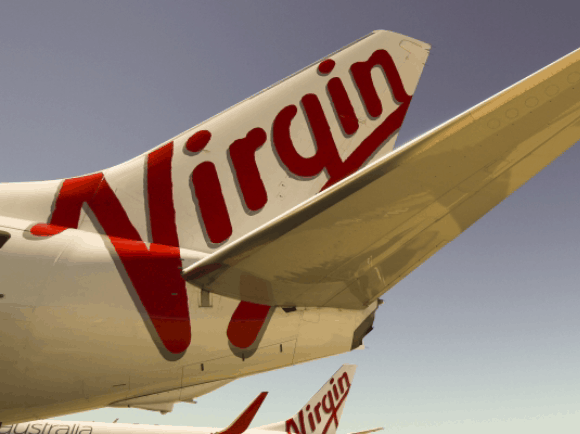
In an email to members, Velocity CEO Karl Schuster said that the changes “are necessary to cover increased airline operating costs”. Yet, Qantas reduced its carrier charges just last month.
For domestic and trans-Tasman flights, the Virgin Australia carrier charge for Economy bookings increases from $3.50 to $10, while Business class increases from $5.50 to $10. Meanwhile, the charge for Business class flights to and from Hong Kong increases from $50 to $98 and you’ll now pay an extra $70 (up from $50) for Business class awards to Bali and Pacific Island destinations. These charges are for one-way flights; for return trips, double the amount.
There is no change to the carrier charges on flights to/from Los Angeles, which are already about the same as Qantas’ fees.
The increased Virgin carrier charges only apply to bookings made on or after 8 January 2020. So, you still have three months to book at the current rates. The carrier charges only apply to Virgin Australia flight bookings made using Velocity Frequent Flyer points.
Here are the old and new Virgin Australia carrier charges:
| Route (one-way) | Class of travel | Until 7 January 2020 | From 8 January 2020 |
| Domestic Australia | Economy
Business |
$3.50
$5.50 |
$10 + GST
$10 + GST |
| Australia to New Zealand | Economy
Business |
$3.50
$5.50 |
$10
$10 |
| Australia to Bali, PNG and Pacific Islands | Economy
Business |
$25
$50 |
$35
$70 |
| Australia to Hong Kong | Economy
Business |
$35
$50 |
$45
$98 |
| Australia to Los Angeles | Economy
Premium Business |
$60
$145 $230 |
$60
$145 $230 |
For years, Virgin Australia did not impose any carrier charges on Reward Seat bookings. The charges, which were initially quite reasonable and well below those of Qantas on most routes, were only introduced at the beginning of this year. At the time, Virgin said that its charges were in line with “local industry practice” and pointed out that “Velocity still remains very competitive and well below the price charged by our competitors”.
This is no longer the case.
Qantas Frequent Flyer initially introduced “fuel surcharges” in 2004 at a time of rising fuel prices. The surcharges began as a relatively small amount, but gradually grew to the astronomical levels we’ve seen in recent years of up to $1,080 for a return flight to Europe.
Virgin Australia’s lack of carrier charges on redemption bookings had long been a competitive advantage for Velocity. But earlier this year, Qantas reduced carrier charges on most routes. They are still quite high, but Virgin’s own carrier charges are now almost as high. In fact, Qantas’ carrier charges on Business class reward seats from Australia to Los Angeles are now lower than Virgin’s.
This is very unimpressive from Velocity Frequent Flyer and represents a minor devaluation to the program. At least Virgin actually publishes a list of its carrier charges on its website; Qantas doesn’t display a list of its own carrier charges anywhere, so we put a list of them on our website.
There are still no carrier charges payable when redeeming Velocity Frequent Flyer points for flights on most of Virgin’s other partner airlines – just genuine government and airport taxes & fees – except for flights on Etihad Airways and Delta.
Join the discussion on the Australian Frequent Flyer forum: Somethings Coming, and it’s increased carrier charges

